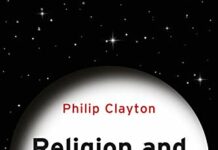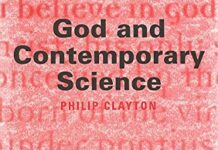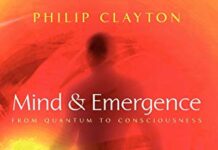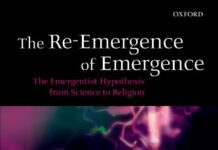
Ebook Info
- Published: 2011
- Number of pages: 194 pages
- Format: PDF
- File Size: 1.25 MB
- Authors: Philip Clayton
Description
Does it make sense – can it make sense – for someone who appreciates the explanatory power of modern science to continue believing in a traditional religious account of the ultimate nature and purpose of our universe? This book is intended for those who care about that question and are dissatisfied with the rigid dichotomies that dominate the contemporary debate. The extremists won’t be interested – those who assume that science answers all the questions that matter,and those so certain of their religious faith that dialogue with science, philosophy, or other faith traditions seems unnecessary. But far more people today recognize that matters of faith are complex, that doubt is endemic to belief, and that dialogue is indispensable in our day.In eight probing chapters, the authors of The Predicament of Belief consider the most urgent reasons for doubting that religious claims – in particular, those embedded in the Christian tradition – are likely to be true. They develop a version of Christian faith that preserves the tradition’s core insights but also gauges the varying degrees of certainty with which those insights can still be affirmed. Along the way, they address such questions as the ultimate origin of the universe,the existence of innocent suffering, the challenge of religious plurality, and how to understand the extraordinary claim that an ancient teacher rose from the dead. They end with a discussion of what their conclusions imply about the present state and future structure of churches and other communities in whichChristian affirmations are made.
User’s Reviews
Reviews from Amazon users which were colected at the time this book was published on the website:
⭐The Intellectual’s Path to Religious FaithIt has been far too many years since I have read a treatise on finding an intellectual path to faith. My memory of struggling with Spinoza, Kierkegaard, Augustine, Pascal, and Aquinas is fairly faint. As I look around at religious fundamentalism, in all faiths, my own basic understanding is that it is an exercise of the heart and not of the mind. Yet, the quandary of finding faith from a rational and empirical and intelligent perspective remains an important one. The instinct toward a truth that is greater than we are is powerfully profound, even among the most thoughtful among us.What strikes me first, even upon a rereading of “The Predicament of Belief: Science, Philosophy, and Faith,” is that I am unsure what the actual perspective of the authors is. Are they believers or not? I would cast my lot with the former, though I remain unsure. And this objectivity is very good and useful, because their lack of expression of a clear opinion from the start prevents the reader from engaging her/his defensive ironies. We remain open to the arguments.I remember Spinoza well enough to see that he shares the authors’ starting point, that nature and God are one and the same and are indifferent, or any intention is largely unknown and unknowable. Like Pascal, I might wager that God exists, and the arguments in this wonderful book are very much to the point. While cleverly and correctly and succinctly separating their reasoning from those who espouse Intelligent Design, They cogently argue that it just seems that something knowing or inherently spiritual is behind what we call the world, or life, or the universe. No other argument makes quite as much sense.The Predicament of Belief: Science, Philosophy, and Faith sets this out as well as could be expected, better than I could have expected. This is a brilliant synthesis, and I believe lies more along the lines of the monism of Epicurean materialism and rather sets aside the arguments of Augustine. To us modern souls, raised on physics and the other physical sciences, this approach is more eminently sensible. If one can be a convert to such a book, this one brought me more firmly into the God camp.I am that middle ground person and hungrily devoured this treatise that hued to neither extreme, the true believer or the scientific atheist. Perhaps like the Unitarian/Universalists, I believe in one God, at most. And I think that in some sense, this book arrives at just that sort of skeptical more generalized belief, because when it transitions from how or why there must be a God to how one might rationally decide that such a God is Christian, there are fewer strong cases to be made. That the authors are not quite as convincing on this point is no fault of theirs. So in a sense what they are describing is a sort of Unitarian/Universalism.Perhaps the fact that this book does not leap to the conclusion that God must be in the Christian mode, and use specious arguments to do so, makes it all that much better. I think that perhaps in the end, it is left better as a question than as an answer.”The Predicament of Belief: Science, Philosophy, and Faith” is a very pertinent book, given the times in which we live, and the persistent hold that religion maintains on modern life, except perhaps in much of Europe. Modern humanity is in essence now in possession of more of the facts, yet many still believe.I believe that most reach faith emotionally, through hope or love, or in some cases fear. One other important path is through the will. Freud and Nietzsche might have said as much. But get this book and read it, and keep it as a reference. It is about as good a book can get in describing an intellectual path to faith.
⭐If you like to think about your religious faith, this is the book for you. For many, it will be a difficult read because it contains philosophical and theological concepts that are difficult to understand and are not always fully explained within the text itself. Does faith seem impossible in a scientific age? This book takes this question and deals with it forthrightly. Question that you may have had about your faith but were afraid to ask and no one else was talking about are explored in this book. If you are willing to be opened minded and stretch your mind, I highly recommend this book.
⭐Well reasoned arguments easily followed even by a non academic reader like myself. Addresses common questions using modern terms. I will recommend this book to my friends.
⭐Phillip Clayton is incredibly well read in the fields touched upon by this book. The points are well argued. Plus he writes in an accessible manner. One of my top 5!
⭐Decent explanation at explaining why Christian literalism is deeply incompatible with science. The attempt to reconcile Christianity and science anyway is based on the idea that some Christian beliefs are not completely contradicted by science. I agree with some but not all of his arguments for partial compatibility but you could make the same argument for any well-developed historical religion.
⭐Fusing elements of process theology, emergentist philosophy and contemporary science, Clayton and Knapp construct a plausible argument for belief in a panentheistic “ultimate reality” (UR) that is “not less than personal” and then propose five possible “minimalist” Christian interpretations of this reality. These range from one that sees Christ as merely an example of godly living, to one that sees him as a doorway (perhaps the only one, perhaps not) into participation with the UR in humanity’s ongoing spiritual development, and finally to one that approaches evangelical claims in its view that Jesus himself remains personally present in the UR and thus relationally available to believers. Of course, even this most robust view of Christianity remains thoroughly modernist and will not appeal to those who hew to biblical literalism – the authors do not address, for example, the question of the atonement, the virgin birth, the apocalypse, Heaven and Hell, or other traditional doctrines that rely wholly or mainly on supernaturalist presumptions (they do offer several possible interpretations of the resurrection, none of them literal). Conversely, those who are firmly grounded in naturalistic theologies will likely be uncomfortable with how far the authors are willing to go to accommodate traditional Christian belief, particularly when they suggest that the UR is omnipotent but voluntarily self-limiting – rather than inherently limited – in its ability to create and/or intervene in creation (thus breaking with Hartshorne and and other leading process thinkers). But for those still wrestling with the question of how much Christian and theistic belief in general remains realistic in today’s scientific age – and to what extent they can be confident of that belief – this book provides the best framework I’ve ever encountered for thinking about this subject intelligently. The footnotes are especially thorough and provide many good suggestions for further reading.P.S. I trust that in future printings the authors will correct an egregious factual error regarding C.S. Lewis on page 122: Lewis’s famous “trilemma” (Lord, liar or lunatic) did not, in fact, allow for the possibility of Jesus as “legend” – that fourth option was instead proposed by his liberal critics. (Personally, I would add a fifth option: perhaps Jesus was simply mistaken in some of his more grandiose claims, which wouldn’t necessarily make him a “liar” or “lunatic,” as Lewis would have it, but merely a flawed human being, like all great historical leaders.)
Keywords
Free Download The Predicament of Belief: Science, Philosophy, and Faith 1st Edition in PDF format
The Predicament of Belief: Science, Philosophy, and Faith 1st Edition PDF Free Download
Download The Predicament of Belief: Science, Philosophy, and Faith 1st Edition 2011 PDF Free
The Predicament of Belief: Science, Philosophy, and Faith 1st Edition 2011 PDF Free Download
Download The Predicament of Belief: Science, Philosophy, and Faith 1st Edition PDF
Free Download Ebook The Predicament of Belief: Science, Philosophy, and Faith 1st Edition



